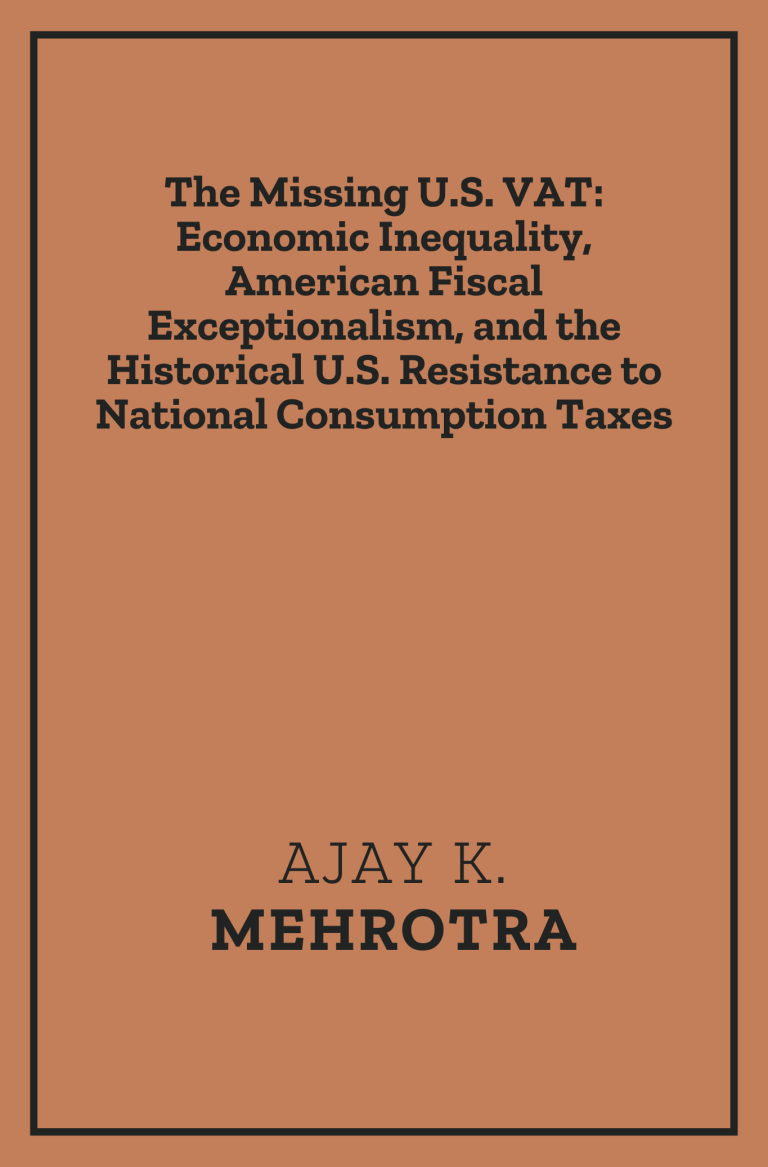From Northwestern University Law Review
Since the 1970s, economic inequality has soared dramatically across the globe and particularly in the United States. In that time, one of the obstacles of using fiscal policy to address inequality has been the growing myth of the “overtaxed American”—the misguided notion that U.S. taxpayers pay more in taxes than residents of other advanced, industrialized countries. This myth has persisted, in part, because of the peculiar and distinctive nature of the fractured American fiscal and social welfare state. Even a cursory review of comparative tax data shows that the United States, by most measures, is a low-tax country compared to other affluent nations. One reason for this shortfall is the missing U.S. value-added tax (VAT).
The United States has historically rejected comprehensive national consumption taxes, suggesting something distinctive about American fiscal policy. This American fiscal exceptionalism leads to a series of important research questions that may help us understand the relationship among fiscal policy, social welfare spending, and economic inequality: Why is the United States such an outlier in global comparisons of national taxes? Why have Americans historically resisted broad-based national consumption taxes of any kind? Simply put, why is there no U.S. VAT? This essay begins to address these fundamental questions.

